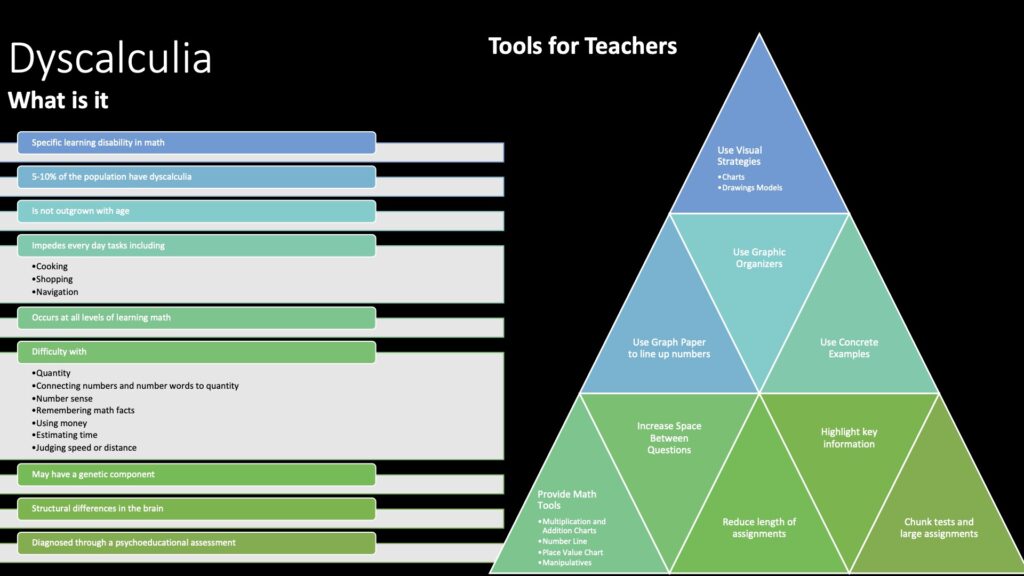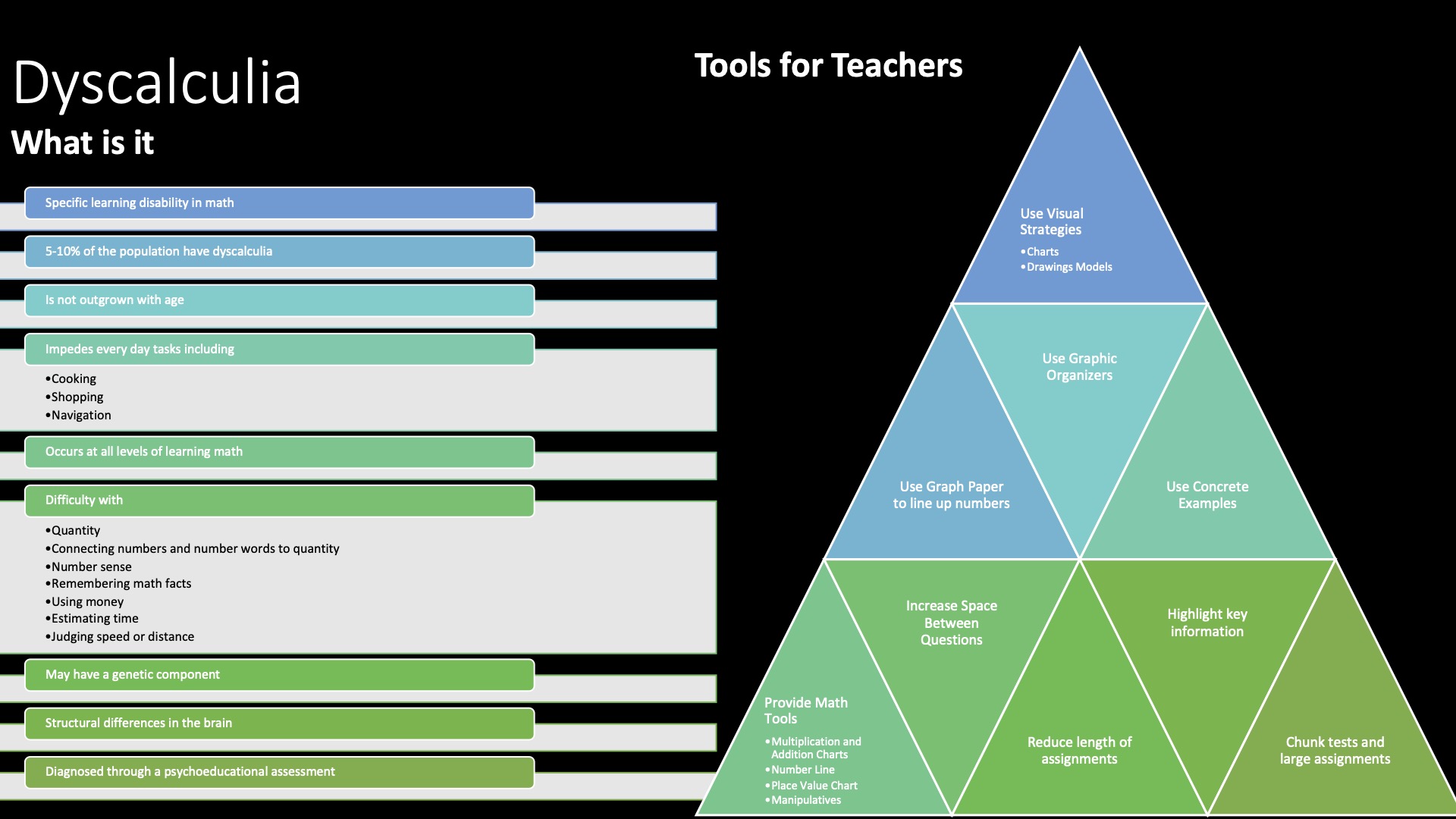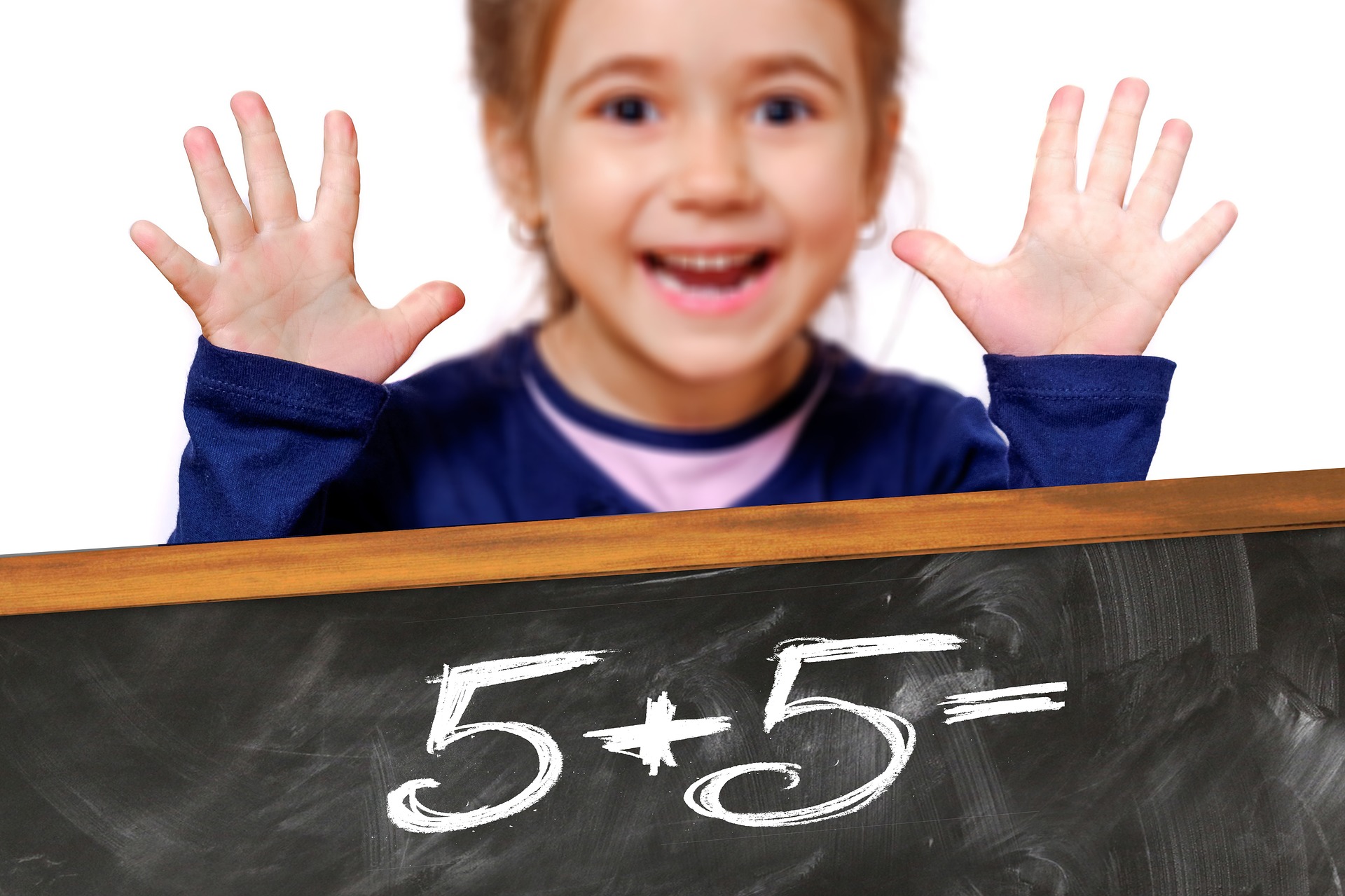
Dyscalculia was news to me for sure. This is something I’m now wondering about with one of my students who struggles with math and not due to their attitude or effort, they are giving it everything they have but it’s just not connecting, they are on the list for a psychoeducational assessment before the end of this year and I’m now curious if something will come up on the test.
In reading more about accommodations for students with dyscalculia it seems that many fall under the RTI frame work as tier 2 and some tier 3 interventions. These students will benefit from small group instruction targeted at the skills they need. Using a UDL frame work and the RTI frame work students with Dyscalculia will be able to participate meaningfully in classroom math instruction. My hope for students with Dyscalculia is that resource support is available for them in math. A challenge I am finding with my weaker and reluctant mathematicians is that the limited resource support we have is targeted at literacy and there is no support for numeracy, my struggling readers and writers get extremely limited resource support while my resource team is not available to consult on my struggling mathematicians. As teachers we are often left to figure out math needs and supports by ourselves with out the support of other professionals. Our resource team’s response is to tell me to give the student a calculator, reduce the number of digits or the number of questions, while all valid adaptations they do not address the root cause of the students struggle. I’m hoping that Dyscalculia becomes a greater part of the conversation and that we are able to begin to find meaningful ways to support students in math.







